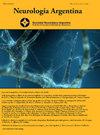2019冠状病毒病对感染后一年内恢复的患者认知表现的影响:使用MoCA-T工具的队列研究
Q4 Medicine
引用次数: 0
摘要
SARS-CoV-2继发性认知障碍包括神经学和精神病学表现。急性和亚急性感染对认知的影响是明确的,但迄今为止,很少有研究来确定这些改变的进展或持久性。目的探讨新型冠状病毒感染与认知功能障碍的关系。方法对卡塔赫纳两家医疗机构的COVID-19患者进行观察性、分析性和前瞻性研究。确定社会人口学和临床特征,并在出院一年后应用MoCA-T测试。比较队列包括无神经认知合并症或COVID-19病史的志愿者。通过估算相对危险度(RR)来评估感染与认知功能障碍的关系。计算频率、中位数和IQR。假设检验包括Fisher检验和Mann-Whitney U检验。rr采用泊松回归模型进行调整。结果对138例患者进行了评估。COVID-19队列包括70人,45.7%的人报告了认知症状。COVID-19患者的MoCA-T评分中位数为18 (IQR: 15-20),而非COVID-19个体的MoCA-T评分中位数为20 (IQR: 19-20)。执行功能、记忆和语言是受影响最大的领域。COVID-19感染与MoCA-T评分低于19有显著相关性(RR: 2.22, 95% CI: 1.09-4.51)。结论新型冠状病毒感染与认知功能障碍风险增加相关。患者表现出记忆症状和注意力缺陷,在MoCA-T测试中表现较差。本文章由计算机程序翻译,如有差异,请以英文原文为准。
Impacto del COVID-19 en el desempeño cognitivo de los pacientes recuperados al año de la infección: estudio de cohortes utilizando la herramienta MoCA-T
Introduction
Secondary cognitive impairment due to SARS-CoV-2 includes neurological and psychiatric manifestations. The impact of acute and subacute infection on cognition is clear, but to date, few studies have been conducted to identify the progression or persistence of these alterations.
Objective
To estimate the association between COVID-19 infection and the development of cognitive impairment.
Methodology
Observational, analytical, and prospective study of COVID-19 patients in two healthcare institutions in Cartagena. Sociodemographic and clinical characteristics were identified, and one year after discharge, the MoCA-T Test was applied. The comparative cohort included volunteers without neurocognitive comorbidities or history of COVID-19. The association of infection with cognitive impairment was assessed by estimating the relative risk (RR). Frequencies, median, and IQR were calculated. Hypothesis testing included Fisher's test and Mann-Whitney U test. RRs were adjusted using the Poisson regression model.
Results
138 patients were evaluated. The COVID-19 cohort included 70, with 45.7% reporting cognitive symptoms. The median MoCA-T score in COVID-19 patients was 18 (IQR: 15-20), compared to 20 (IQR: 19-20) in non-COVID individuals. Executive function, memory and language were the most affected domains. COVID-19 infection was significantly associated with MoCA-T score below 19 (RR: 2.22, 95% CI: 1.09-4.51).
Conclusions
COVID-19 infection is associated with an increased risk of cognitive impairment. Patients exhibit mnemonic symptoms and attentional deficits, with lower performance on the MoCA-T test.
求助全文
通过发布文献求助,成功后即可免费获取论文全文。
去求助
来源期刊

Neurologia Argentina
Medicine-Neurology (clinical)
CiteScore
0.50
自引率
0.00%
发文量
34
期刊介绍:
Neurología Argentina es la publicación oficial de la Sociedad Neurológica Argentina. Todos los artículos, publicados en español, son sometidos a un proceso de revisión sobre ciego por pares con la finalidad de ofrecer información original, relevante y de alta calidad que abarca todos los aspectos de la Neurología y la Neurociencia.
 求助内容:
求助内容: 应助结果提醒方式:
应助结果提醒方式:


